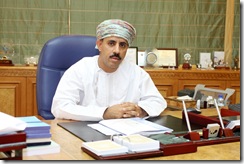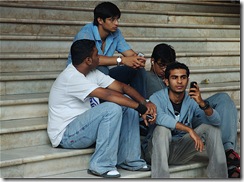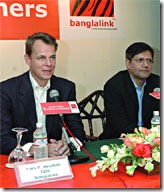Econet Wireless Kenya, which trades under the Yu brand name, has refuted local media reports that South Africa’s MTN has offered US$450 for a stake in the company. The reports are “rumours,” CEO Srinivasa Iyengar told reporters in Nairobi. 
The claimed price being offered by MTN coincidentally matches the US$450 million in debt the network recently raised to fund its rollout plan.
Last year, Econet Wireless International (EWI) sold a 49 per cent stake in the company to India’s Essar Communications Holdings. The companies said that the move would significantly benefit Econet Wireless Kenya (EWK), which is 70 per cent owned by EWI, from a rollout as well as product offering perspective.
“Econet is not for sale,” Iyengar is quoted as saying. “Essar is a partner for life.” Econet Kenya will change its name to Essar Telecom Kenya, he also said.
Yu was recently reported to have signed up 200,000 subscribers since it launched last November – and is aiming for one million customers by the middle of the year.
At the beginning of February former Econet Wireless Kenya CEO and managing director Michael Foley unexpectedly resigned just six months after he was appointed to the role. Local reports suggested he quit “to protect his integrity in the midst of a tightening in the company’s liquidity caused by delay in securing credit”, amid reports that the nascent operator was struggling to pay suppliers.






